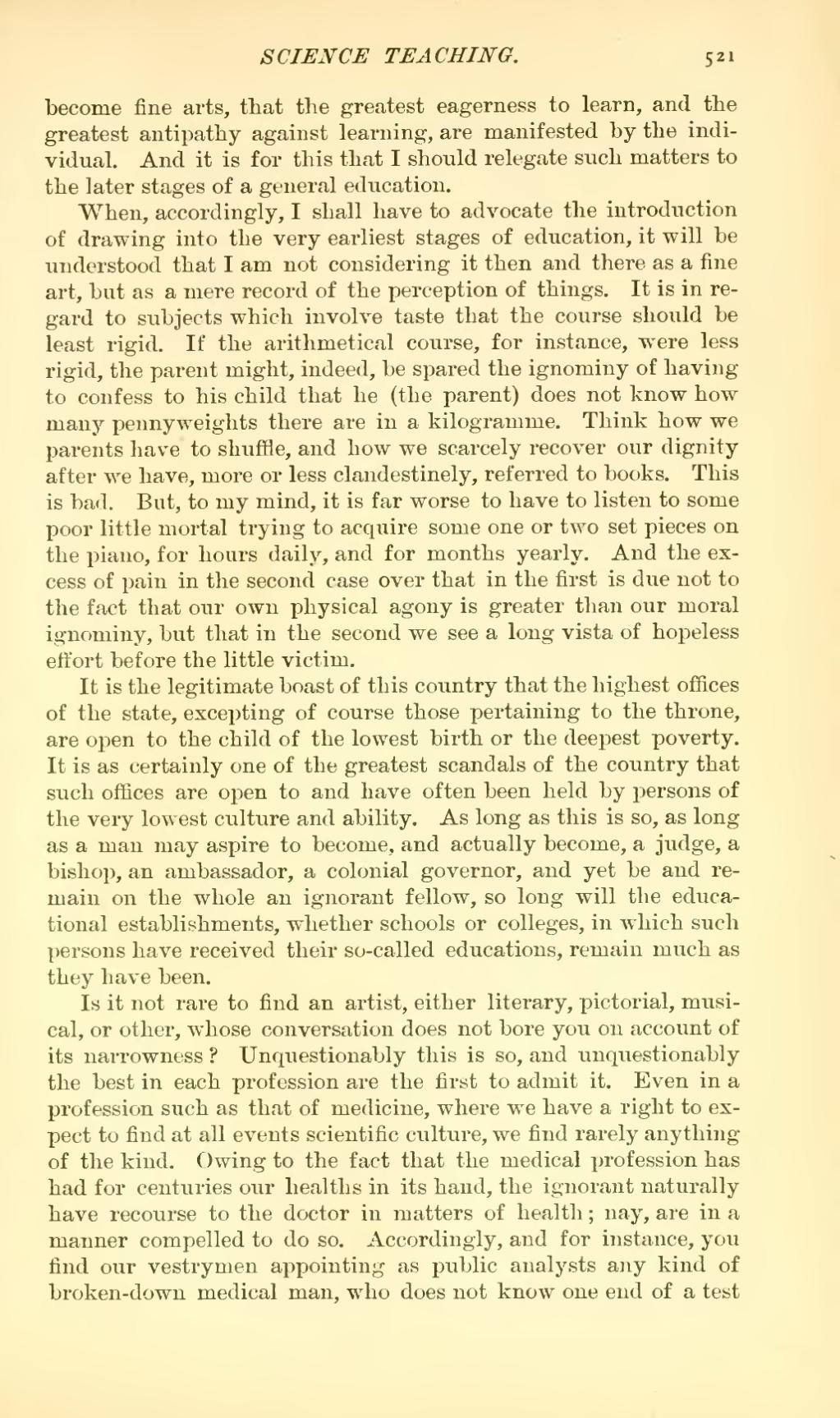become fine arts, that the greatest eagerness to learn, and the greatest antipathy against learning, are manifested by the individual. And it is for this that I should relegate such matters to the later stages of a general education.
When, accordingly, I shall have to advocate the introduction of drawing into the very earliest stages of education, it will be understood that I am not considering it then and there as a fine art, but as a mere record of the perception of things. It is in regard to subjects which involve taste that the course should be least rigid. If the arithmetical course, for instance, were less rigid, the parent might, indeed, be spared the ignominy of having to confess to his child that he (the parent) does not know how many pennyweights there are in a kilogramme. Think how we parents have to shuffle, and how we scarcely recover our dignity after we have, more or less clandestinely, referred to books. This is bad. But, to my mind, it is far worse to have to listen to some poor little mortal trying to acquire some one or two set pieces on the piano, for hours daily, and for months yearly. And the excess of pain in the second case over that in the first is due not to the fact that our own physical agony is greater than our moral ignominy, but that in the second we see a long vista of hopeless effort before the little victim.
It is the legitimate boast of this country that the highest offices of the state, excepting of course those pertaining to the throne, are open to the child of the lowest birth or the deepest poverty. It is as certainly one of the greatest scandals of the country that such offices are open to and have often been held by persons of the very lowest culture and ability. As long as this is so, as long as a man may aspire to become, and actually become, a judge, a bishop, an ambassador, a colonial governor, and yet be and remain on the whole an ignorant fellow, so long will the educational establishments, whether schools or colleges, in which such persons have received their so-called educations, remain much as they have been.
Is it not rare to find an artist, either literary, pictorial, musical, or other, whose conversation does not bore you on account of its narrowness? Unquestionably this is so, and unquestionably the best in each profession are the first to admit it. Even in a profession such as that of medicine, where we have a right to expect to find at all events scientific culture, we find rarely anything of the kind. Owing to the fact that the medical profession has had for centuries our healths in its hand, the ignorant naturally have recourse to the doctor in matters of health; nay, are in a manner compelled to do so. Accordingly, and for instance, you find our vestrymen appointing as public analysts any kind of broken-down medical man, who does not know one end of a test
